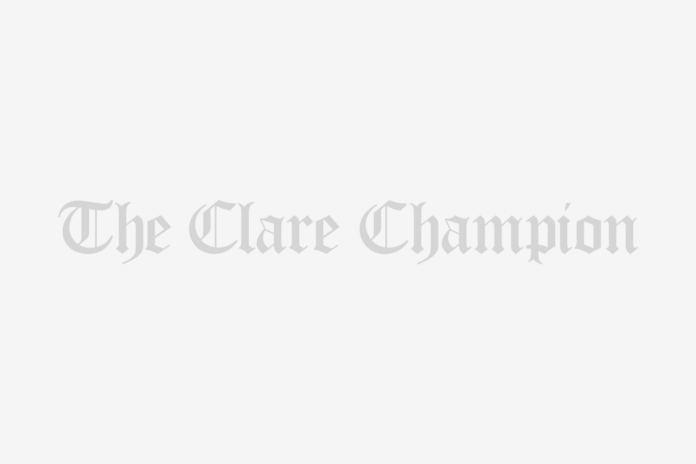Kilmaley-born priest Fr Christy Burke released his book No Longer Slaves in Dublin last weekend. Fr Christy, who was ordained as a Holy Ghost missionary priest in 1965, was based in Kenya from 1966 until 2002. Prior to his retirement in 2009 he worked as chaplin in the rehabilitation hospital, Dún Laoghaire, for six years.
The book explores the contribution to the development of missionary work made by Fr Francis Libermann, a French priest who was co-founder of the Spiritan (Holy Ghost) congregation. The reader is invited by Fr Burke to reflect on the relevance of Fr Libermann for the mission that he feels is required in Ireland today.
Jacob Libermann was born into an Orthodox Jewish family in the ghetto of Saverne, Alsace, France in 1804. As a young man, Libermann prepared to follow in the footsteps of his father, the chief rabbi of Saverne.
After losing his faith in Judaism he became an agnostic before being given a Hebrew translation of the Gospels. Libermann was captivated by the high moral tone of Jesus’ discourses, though he could not accept the supernatural elements in the Gospels.
Then, however, he received three blows to his agnosticism when two of his brothers, to whom he was very attached and an old friend and former fellow student, converted to Roman Catholicism.
Libermann himself was baptised on December 24, 1826, taking the name François Marie Paul. He entered a Paris seminary in the same year to study for the priesthood. The knowledge of his conversion was long concealed from his father, who was horrified to learn of his son’s actions. When the news of his baptism reached Saverne, the ranks of the ghetto closed against him and his father subsequently mourned him as dead.
Fr Burke’s work is a rewrite of a doctoral thesis he completed when he studied in Rome, for Seán O’Riordan, a Redemptorist priest.
His time in East Africa involved co-operating with local people on a level not evident in Ireland during the same era and a concept championed by Fr Libermann.
“We depended a lot on the local people because we were foreigners and thereby communities emerged that were more or less independent of the priest in many ways. They would meet and have their own services because of the shortage of priests. That’s coming in Ireland now and people are worried about the shortage. Whereas it’s an opportunity to develop another type of ministry,” he suggested.
A recent article in The Furrow, which is published monthly and describes itself as ‘a journal for the contemporary Church,’ encapsulates Fr Burke’s outlook on how the modern church should operate.
“The article spoke about how the priest was just a member of the community and the community should call the shots in many ways. If there was a shortage of priests and you couldn’t get to mass, they’d hold a meeting and read the bible. This was in the strategy of Libermann in the 1840s,” Fr Burke explained.
Fr Burke’s 36-year stint in Kenya included a huge portion of time serving in the education in secondary schools, the seminary and at university level.
“I was in the Mombassa diocese for the first eight years and then for the rest of my time there I was in Nairobi. I’d feel it when I’d come home. Ireland was a kind of foreign country to me because it was changing so much,” he reflected.
Another of Fr Christy’s roles in Kenya was as an adviser to the Family Life Counselling Association of Kenya. “The big issue in 1968 was contraception but it didn’t affect Kenya the same way as it affected Europe. Aids was a big issue there and it is still. For a while it became politicised,” he said.
He didn’t judge his parishioners though, whatever their take on Church decrees.
“Not all all. You respect the people. You tell them what you believe and you respect their response,” he stated.
Kilmaley-born priest releases No Longer Slaves

